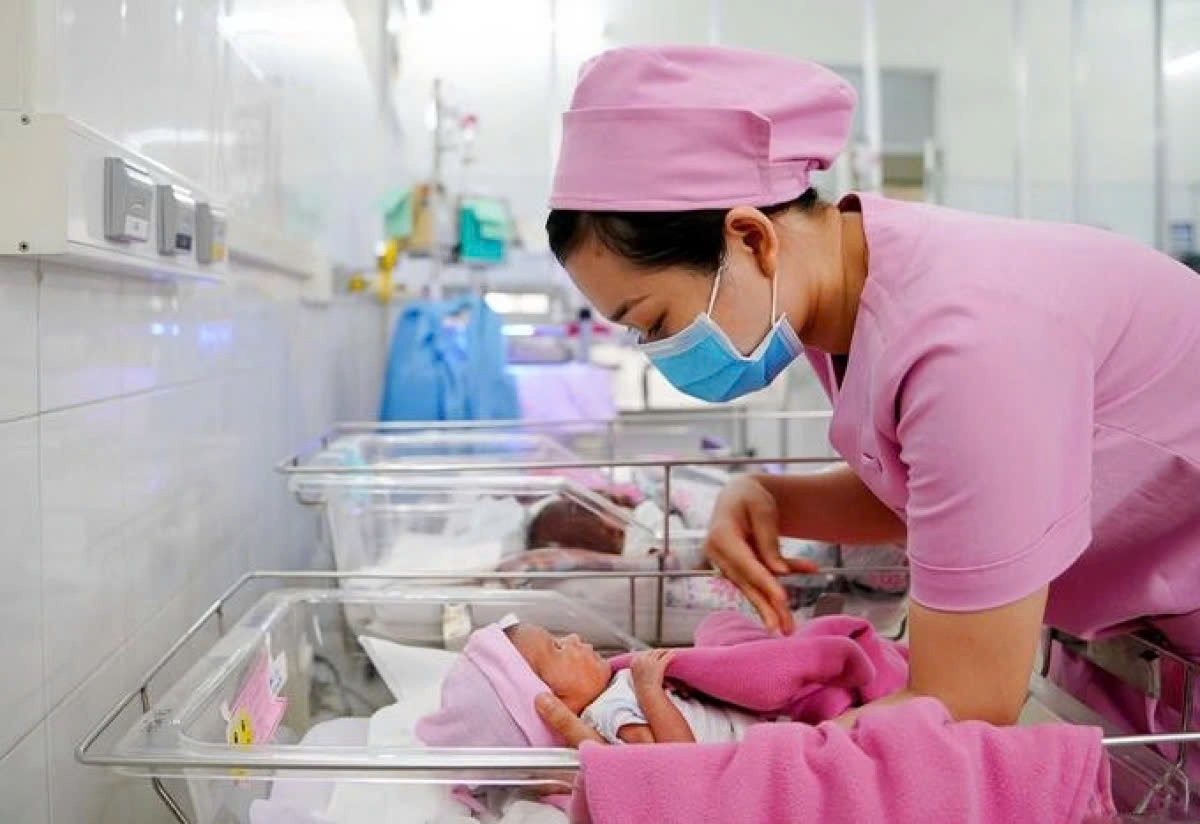Major boost to population and family planning policies in Vietnam
VOV.VN - The Political Bureau’s recent decision not to discipline Party members who have a third child or more is expected to help increase the total fertility rate nationwide and align with both the country’s demographic realities and its sustainable development needs.

Recent years has seen Vietnam’s total fertility rate continuously decline to record-low levels. Statistics indicate that the country’s birth rate had remained relatively stable around replacement level for nearly 15 years from 2009 to the end of 2022 before then starting to fall more rapidly in 2023 and 2024. In 2023, the total fertility rate was 1.96 children per woman, which further dropped to 1.91 the following year.
Among the regions with the lowest birth rate are the Southeast (1.48 children per woman) and the Mekong Delta (1.62 children per woman), falling below the replacement level of 2.1 children per woman needed to maintain population stability nationwide.
This reality calls for urgent solutions in a bid to improve the birth rate and address the looming issue of an aging population.
According to Le Thanh Dung, director of the Department of Population under the Ministry of Health (MoH), existing regulations limiting each couple to only one or two children has been in place for many years. Different policies have been introduced over time, including penalties for violating population policy by having a third child. However, he said that penalising those who have a third child is no longer appropriate at the moment as Vietnam is facing a declining birth rate trend, though it is not yet at a critical level.
It could become a major issue if no early interventions are made, meaning that relaxing the childbirth limit is necessary, recommended the official.
To address the issue, the MoH proposed various measures while drafting the Population Law to boost the total fertility rate. A key proposal is to remove disciplinary measures taken against individuals having a third child or more. This is part of a broader effort to encourage childbirth. The MoH also suggested that couples and individuals should have the right to voluntarily, equally, and responsibly decide on childbirth, including the number and timing of children.
Pham Khanh Phong Lan, a National Assembly deputy of Ho Chi Minh City, welcomed the proposal to remove disciplinary measures taken against Party members who have a third child, particularly as it aims to shift perspectives on population policy and boost the birth rate.

Meanwhile, Nguyen Minh Tam, a member of the former Committee for Judicial Affairs of the National Assembly, pointed out that the nation is entering an aging population phase, making it crucial to maintain the total fertility rate nationwide. Therefore, she suggested, amending the existing Population Ordinance into a Population Law should be urgent.
During the drafting of the Population Law, the Government should ensure that couples have the right to decide on childbirth, the timing of childbirth, the number of children, and spacing between births, she suggested.
In her opinion, these rights should be reinforced with supportive measures such as prohibiting businesses from dismissing pregnant women and providing tax reductions for couples expecting a child or raising young children. Such measures are essential to sustain a stable total fertility rate nationwide.
Prof. Nguyen Thien Nhan, former secretary of the Ho Chi Minh City Party Committee, emphasised that the Government should include the total fertility rate in socio-economic reports to implement measures aimed at increasing birth rates. According to him, this represents a critical national indicator that is directly tied to human development and long-term Vietnamese sustainability.
Given the rapid decline in Vietnam’s birth rate, Prof. Nhan, who is also former president of the Central Committee of the Vietnam Fatherland Front, urged policymakers to revise regulations promptly, eliminate barriers, and ease concerns among officials and Party members who might hesitate to have a third child. Removing such disciplinary measures, he argued, would also help to effectively communicate the country’s updated population policies to the public.
In a latest move, the Politburo has approved this proposal and instructed a swift review and revision of legal documents related to childbirth policies. This will ensure that those having a third child or more are no longer subject to disciplinary action.
Vietnam is projected to become a “super-aged” society by 2049 when the proportion of people aged 65 and above will exceed 20% of the population, leading to significant consequences such as labour shortages, a healthcare crisis, population decline, and burdens on social welfare. Therefore, regulations prohibiting or disciplining officials and Party members for having a third child should be revised, especially in regions with a low birth rate, to better align with current realities.



